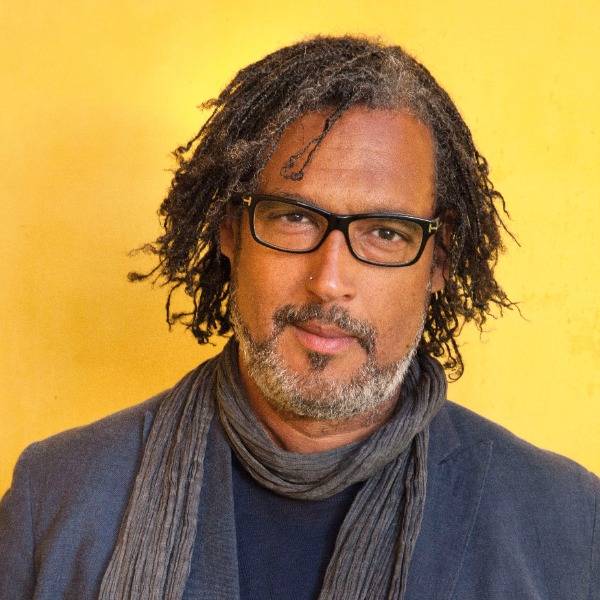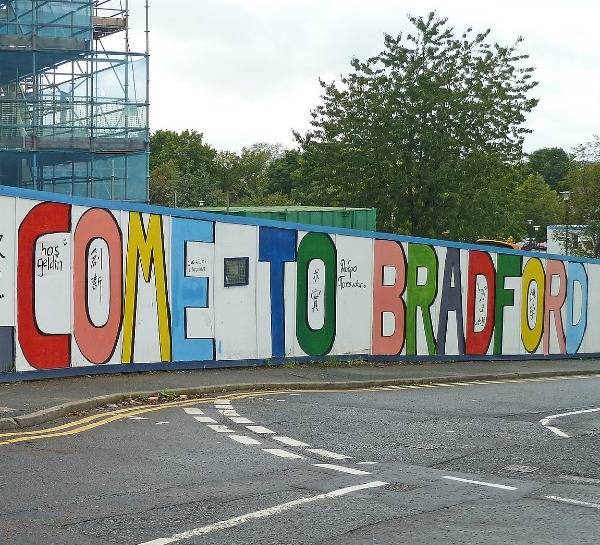This article is a preview from the Winter 2014 edition of New Humanist. You can find out more and subscribe here.
Women Against Fundamentalism: Stories of Dissent and Solidarity (Lawrence & Wishart) by Sukhwant Dhaliwal and Nira Yuval-Davis (eds)
With the closure of Women against Fundamentalism (WAF) in 2012, British politics lost an important voice and perspective at a time when religious ideologies have been powering up and faith-based organisations are increasingly favoured by Government in its outsourcing of education and violence against women services, to name but two areas. Part of the attraction of WAF to its membership, as the contributors to this book repeatedly affirm, was its insistence on making the link between all religious fundamentalisms, thereby confronting the inherent racism of any position that sought to commend one religion above another.
In the past year alone, there have been a number of dots that would have benefited from being joined up. While all are examples of the dangerous encroachment of religious forces into the public arena, it is Islamic fundamentalism that has gained the most column inches. Yet other forms of fundamentalism have been on the march. In April, David Cameron urged Christians to be more “evangelical” about their faith and more ambitious about expanding the role of faith-based organisations; he asserted that it was “easier to be Jewish or Muslim in Britain” because of its Christian tolerance. In July, the Daily Mail demanded to know why Cameron did not show “Christian tolerance” towards the bakery which stood by its Christian beliefs and refused to bake a cake to celebrate International Day against Homophobia and Transphobia, an act for which it is facing possible legal action under equality legislation. Hinduism too parades under a mantle of tolerance – a myth so prevalent that it has allowed for the rise of Narendra Modi to the Indian premiership despite his record as a Hindu nationalist who presided over one of the worst massacres of Muslims in Gujarat in 2002. Given the British government’s desire to do business with India, reporting of his fundamentalist leanings has been muted.
In September 2013, the BBC broadcast a documentary investigating the activities of the Sikh Awareness Society (SAS), an organisation run by Mohan Singh, a self-appointed guardian of young girls. Singh has made claims about Sikh girls being targeted and groomed by gangs of Muslim men, on the back of the Rochdale and Oxford prosecutions. In the documentary, Sukhwant Dhaliwal, co-editor of this book, found that many of Singh’s allegations were unsubstantiated, that concern about grooming was lumped together with girls exercising sexual freedoms, and that the perpetuation of the trope of the “Muslim” bogeyman was driven by communal hatred. Singh’s call to action, in Gurdwaras up and down the country, invoked in the name of Sikh honour and conservative religious values, found fertile ground in parental anxieties.
However, none of these issues were debated as vociferously as the issue of segregation of the sexes at lectures given by external speakers at universities, after Universities UK issued guidance stating that segregation was acceptable as long as it was “voluntary”. This was an oxymoron, as Radha Bhatt, a Cambridge student, pointed out in a piece for the website openDemocracy, because for many women there would be no real choice. Interestingly, Georgie Wemyss’s chapter in the book describes local struggles against such segregation at Tower Hamlets College as far back as the early ’90s. Dhaliwal feels that “joining the dots of contemporary struggles against fundamentalism is what is really missing from the picture and it is what WAF could have brought to the table.”
The groups One Law for All and Southall Black Sisters did campaign on this issue; but as the former, set up by the Council of Ex-Muslims of Britain, is focused solely on Islamic fundamentalism, and as Southall Black Sisters does not have the capacity to consistently take on this kind of political work, and as other secular organisations do not focus specifically on the impact on women, the WAF-shaped hole becomes apparent.
Given the rise of anti-Muslim racism, this focus on the elements common to all religious fundamentalism – which WAF defined as “modern political movements that use religion to gain or consolidate power” – provided an important counter-narrative. At the same time, WAF had to grapple with the fact that, as Islamic fundamentalism was the most active of all religious fundamentalisms in the UK, a disproportionate amount of its focus fell on Islamism. Given also the mainstream media’s interest in Islam, it was a common, but mistaken, perception of WAF that it had an anti-Muslim bias. However, this did not stop WAF from critiquing the Left’s craven support for political Islam in its attempt to establish its anti-racist and anti-imperialist credentials in the face of Western military interventions in Iraq, Afghanistan and Libya, the War on Terror, illegal detention of Islamists and the rise in anti-Muslim racism.
While WAF prided itself on its anti-racist and anti-imperialist stance, it did not wish to ally itself with those whose political and religious views adversely impacted on the position of women, children, LGBT people and other religious minorities. In the current polarised political climate, it is often the Right that makes the human rights case against political Islam, another position that WAF had to distance itself from. This has surfaced most recently in the Birmingham “Trojan Horse” schools scandal. The Right, as represented by the then education secretary Michael Gove, condemned the network of Muslim extremists attempting to convert state schools into faith schools by the back door. It did this not out of concern for women’s rights, but because it argued that the schools would become breeding grounds for future terrorists. Yet officials in the Labour-run council allegedly refused to take action for fear of being considered “Islamophobic”, while some others on the Left saw it as an anti-Islamic “witch-hunt”. WAF would have adopted a nuanced position between these poles.
This janus-headed approach to racism and fundamentalism was forged in the heat of the Salman Rushdie affair in 1989, when the need for a nuanced perspective moved Southall Black Sisters to set up WAF. Their very first picket outside Parliament in 1989, held in opposition to a large anti-Rushdie march, encapsulated the contradictions. Approximately 50 women were marooned between a march of predominantly young Asian men calling for a ban on The Satanic Verses, and a group of National Front (NF) supporters who had presumably turned up to harass those men. Instead of tackling the NF, the Asian men verbally and physically attacked WAF members, who then had to rely on the police for protection – a double irony because, in any other context, WAF would have been marching alongside their Asian “brothers” against police and state racism!
WAF’s nuanced line proved difficult to hold, and it finally frayed in 2010 over the controversy surrounding the ex-Guantanamo detainee Moazzam Begg. Gita Sahgal, a founding member of WAF, resigned as head of the Gender Unit at Amnesty International in protest on the core principle of the universality of human rights. Although Sahgal fully supported the Amnesty campaign against the illegal detention of Muslim men at Guantanamo Bay, she believed that Amnesty’s continued close association with Begg, due to his alleged Salafist beliefs and sympathies with the Taliban, militated against women’s rights and undermined Amnesty’s otherwise excellent work on, for example, violence against women.
WAF was torn over whether, in this case, anti-racism and the need to stand firmly against the state’s “War on Terror” conflicted with the struggle against fundamentalism. Clara Connolly, a WAF member, had no issue with the collaboration as long as Begg did not preach from an Amnesty platform. Sahgal was less concerned about balancing anti-racism and anti-fundamentalism. In relation to Rushdie, she writes, “I was not interested in seeing the Rushdie affair as a response to British racism… [it] had turned me into an evangelist – for secularism.” Salman Rushdie and Moazzam Begg turned out to be the bookends that marked the birth and death of WAF. Analysing why the first united and the second divided opinion would itself justify a whole new book. Did 9/11 change the way we read everything? Did the War on Terror unleash an unprecedented form of state brutality? And did that make questions about fundamentalism less important than in Rushdie’s time?
There were other fault lines within the group that members learned to live with. Julia Bard points to one of these: “We haven’t managed to forge a common understanding of the War on Terror and its aftermath. There are some women who think that there’s no way the war in Iraq and Afghanistan can be progressive, and others who believe that the West could and should intervene to defend human rights there.”
WAF’s position on religion was also equivocal: while it was committed to a secularism that accommodated people of faith and of no faith, and stated specifically that it was against religious fundamentalism rather than religious belief itself, in practice things were not clear. Ruth Pearson expressed disquiet that “WAF’s commitment to ‘women of many religions’ as well as ‘of none’ was becoming lost in translation.” She also worried that secularism for many WAF members had come to mean “not just a separation of religion and state, but also the absence of religious beliefs and practices”. Some black women had left the organisation because, according to Pragna Patel, they felt that WAF did not accurately reflect in its analysis “that religion was a site of empowerment and resistance against racism and slavery for many African and Caribbean people, as illustrated by the history of the civil rights movement in the US.” Furthermore, many of the issues confronted by WAF – like the anti-abortionism of Catholicism – are core religious beliefs rather than aspects of fundamentalism. The religious issue was fudged, although Patel attempts to refine it: “We were not anti-religion in circumstances where it aligned itself with secular, feminist and democratic movements.”
Every group has its political contradictions; however, there is no doubt that WAF was, in Patel’s words, “that rare example of how to rise above the worst aspects of identity politics which plagues much of feminism today. We came together on the basis of need and not identity, which necessitated understanding and acknowledging the different locations of the women involved and then using these experiences to forge a progressive politics that was at once feminist, anti-racist and anti-fundamentalist.”
The book is a fascinating collection of the political, social and personal histories of some of the key women involved in WAF, and it reveals how their experiences shaped their thinking around religious fundamentalism. The connections between the personal and political are eloquently summed up by Rashmi Varma: “As reactionary fundamentalist movements across the world make daily inroads into our everyday lives, into our intimate spheres as well as the public spaces we traverse, the very act of telling lives can be a pointedly political one. It challenges the divisions between the public and the private, and the outer and the inner worlds that we occupy – and transgress – daily as women and more so as feminists.”
Women of different religious backgrounds and ethnicities, from parts of the world as disparate as Israel, East Africa, South Asia, Australia, the middle-East, Eastern Europe, America and Britain, all testify to the importance of WAF and how the insights honed in the organisation informed their political actions elsewhere.

